by Carlien Donkor, Carola Hein, Julia Dahlan, Matteo D’Agostino and Erik de Maaker
From 18-25 May 2024, members of the UNESCO Chair Water, Ports and Historic Cities and the PortCityFutures Center joined the 10th World Water Forum (10WWF) in Nusa Dua, Bali. The 10WWF presented an opportunity to not only showcase the work of the UNESCO Chair but also to exchange with other international programs and projects that work to ensure sustainable and just water futures through interdisciplinary collaboration and innovation. Our delegation gained valuable insights on how to further our work within the PortCityFutures Center.
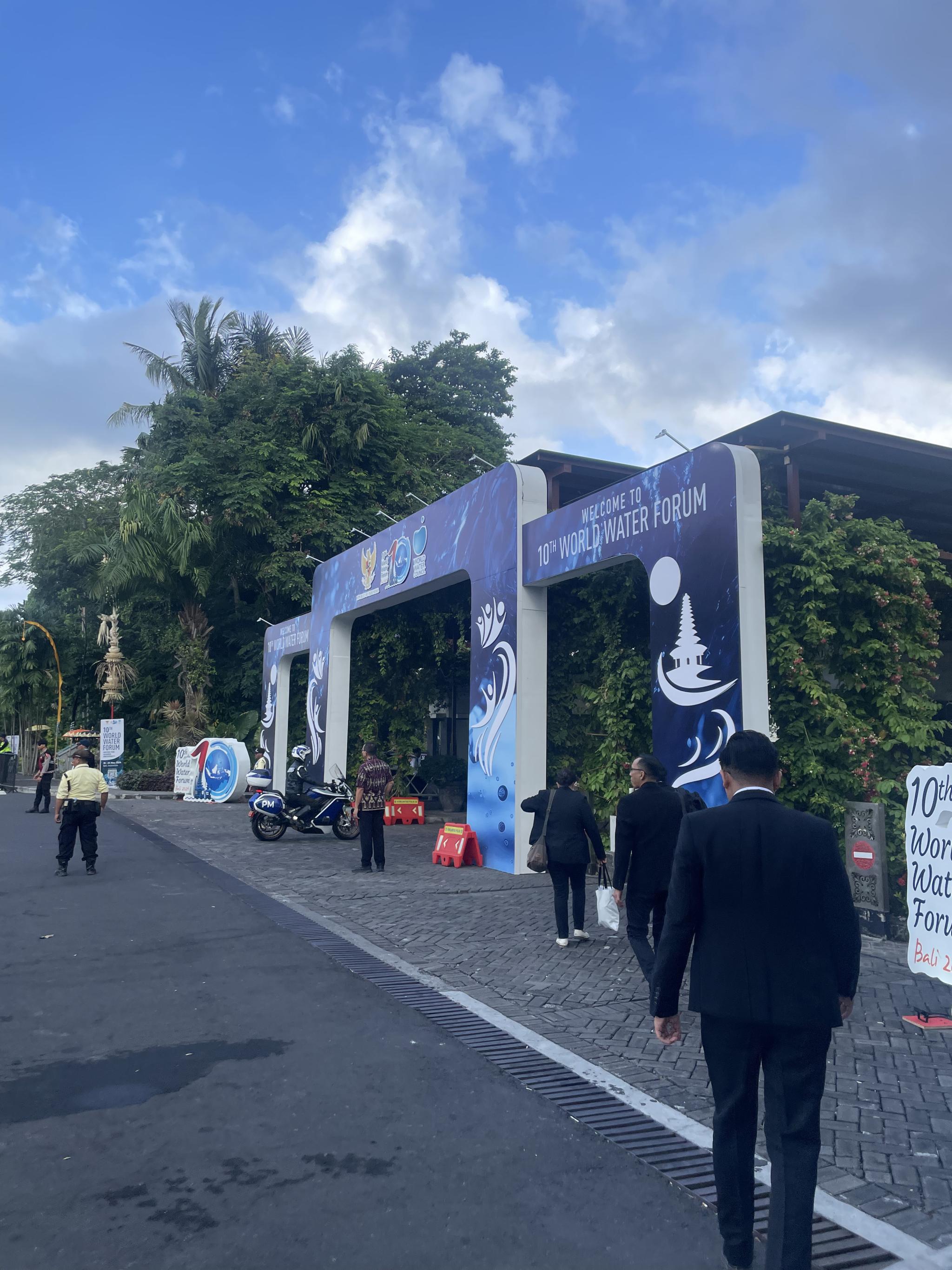
Our team co-organized and coordinated a number of events, many of which are reported on in 10th World Water Forum: Our Collective Journal and Key Takeaways, Part I. This particular text focuses on the official special side event SE37 Promoting the Values of the Subak System for Sustainable Water and Heritage Management in collaboration with colleagues from Udayana University, University of Indonesia, Reservoair, Bale Bengong and Capybara Unit Visual. The goal was to practically engage with the Balinese Subak system and to present our findings at the conference, thus triggering further action. In the run up to the conference, we requested videos from different local actors answering the question: “How can my organization address the key challenges and opportunities of integrating Subak values?” These videos were meant to identify and initiate potential areas for partnership between diverse players who influence the management of the Subak system.
SE37 The Official Side Event at the Subak Sites and Reporting Session
The full-day program for Day 1 focused on identifying, understanding, and advancing the past and present values of the Subak system for sustainable water and heritage management. The starting point was a meeting at the Faculty of Agriculture of Udayana University in Denpasar [see video]. After months of planning with local partners, we welcomed participants from various sectors including water, culture, heritage, public, private, and NGOs. Official greetings from the Indonesian Ministry of Public Works and Housing and the Bali Nusa Penida River Basin Organization were followed by an overview of our work at the UNESCO Chair WPHC. We then continued to discuss water values within the context of Indonesia. As the world’s largest archipelago, the presence and connection of fresh and salt water and its impact on people’s daily lives, beliefs, and practices is omnipresent in Indonesia. Beyond the presentations on spiritual, socio-cultural, and environmental aspects of the Subak water heritage and its relation to water management and heritage preservation, understanding the unique conditions of Bali’s water management is key to promoting community-based and inclusive water systems as an inspiration for future infrastructure and practices. The Indonesian Ministry of Culture, for example, presented their GIS models of the Subak sites. This initiative corresponds with the UNESCO Historic Urban Landscape approach and the recently launched UNESCO Urban Heritage Atlas, with the goal of creating more contextualized approaches to water and heritage.
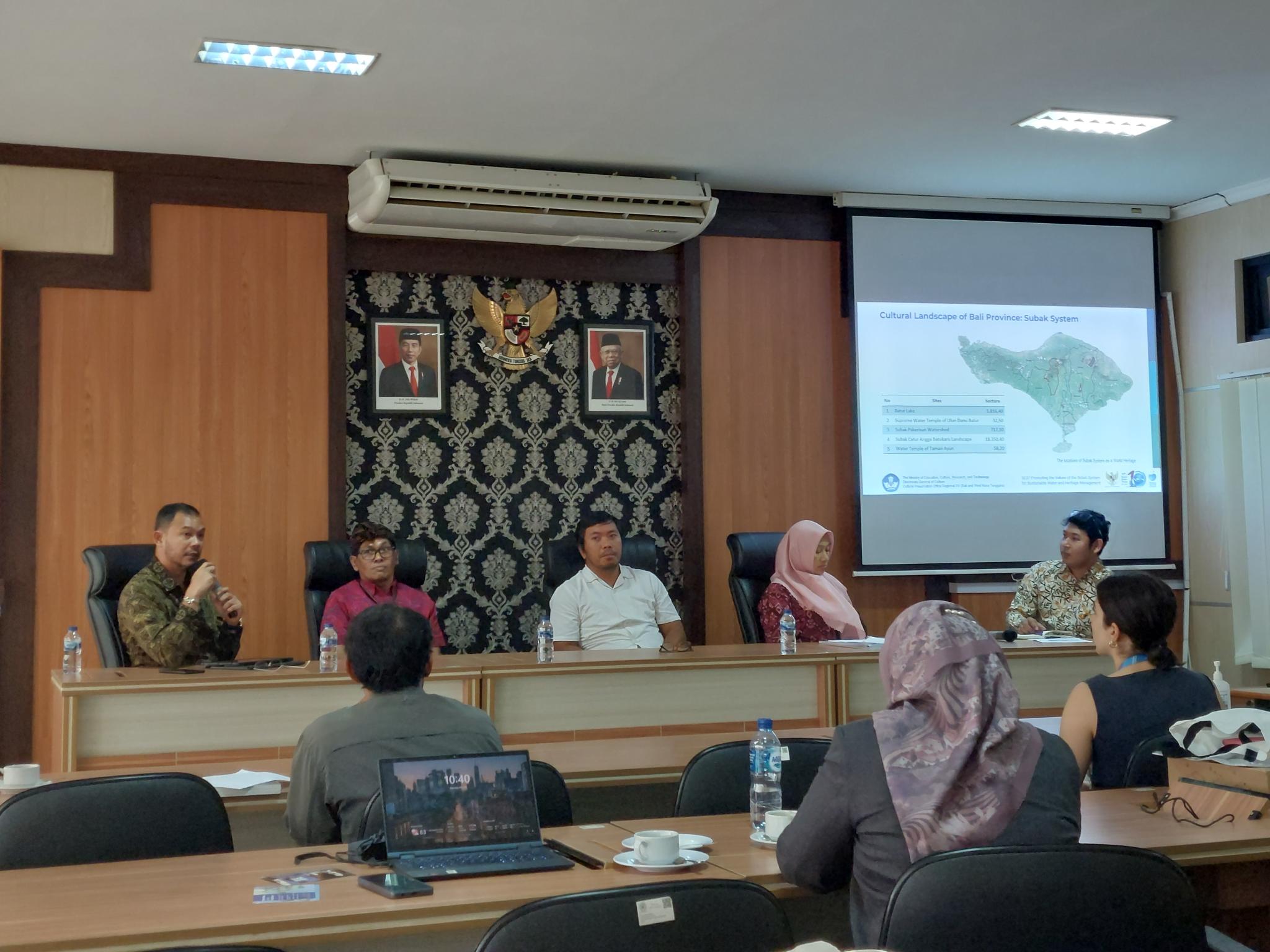
For part two of the program, the respective heads and community members of two Subak sites in Denpasar (the capital city of Bali) and the participants met at the respective locations: Subak Sembung and Subak Delod Sading. The two sites have different characteristics in terms of size, surroundings, operation, and management, yet their accompanying challenges and potential solutions are quite similar. Rice growing as a lucrative agricultural activity has suffered due to imported rice from other regions, while urbanization pressure due to growing housing and tourism needs in the Denpasar area makes the land more attractive for construction. As a result, the integrated dimensions of water management, agriculture, and community building that are inherent in the Subak system are threatened. What would be lost, if these Subaks ceased to exist? In each Subak, locals explained the workings of their systems, set up to deliver water from a source in the mountains to a central canal through secondary and tertiary channels and finally to individual rice fields. They showed different states of rice growth and explained the rituals that were performed from planting to harvesting. Erik de Maaker highlighted how Subak Sembung functions as an ecotourism spot, featuring jogging paths and a small cafe for visitors to relax by the rice fields. Subak Delod Sading is not as well-known, although similar issues of rapid urbanization have, for instance, caused shrinkage of the Subak land from 110 ha to 65 ha as most landowners sold their plots during the 1998 economic crisis. An interesting observation from the Subak head was the high youth involvement in the Subak activities during the COVID pandemic. Questions posed here revolved around the pace of city life and how slowing it down may advance intergenerational knowledge transfer of cultural heritage.
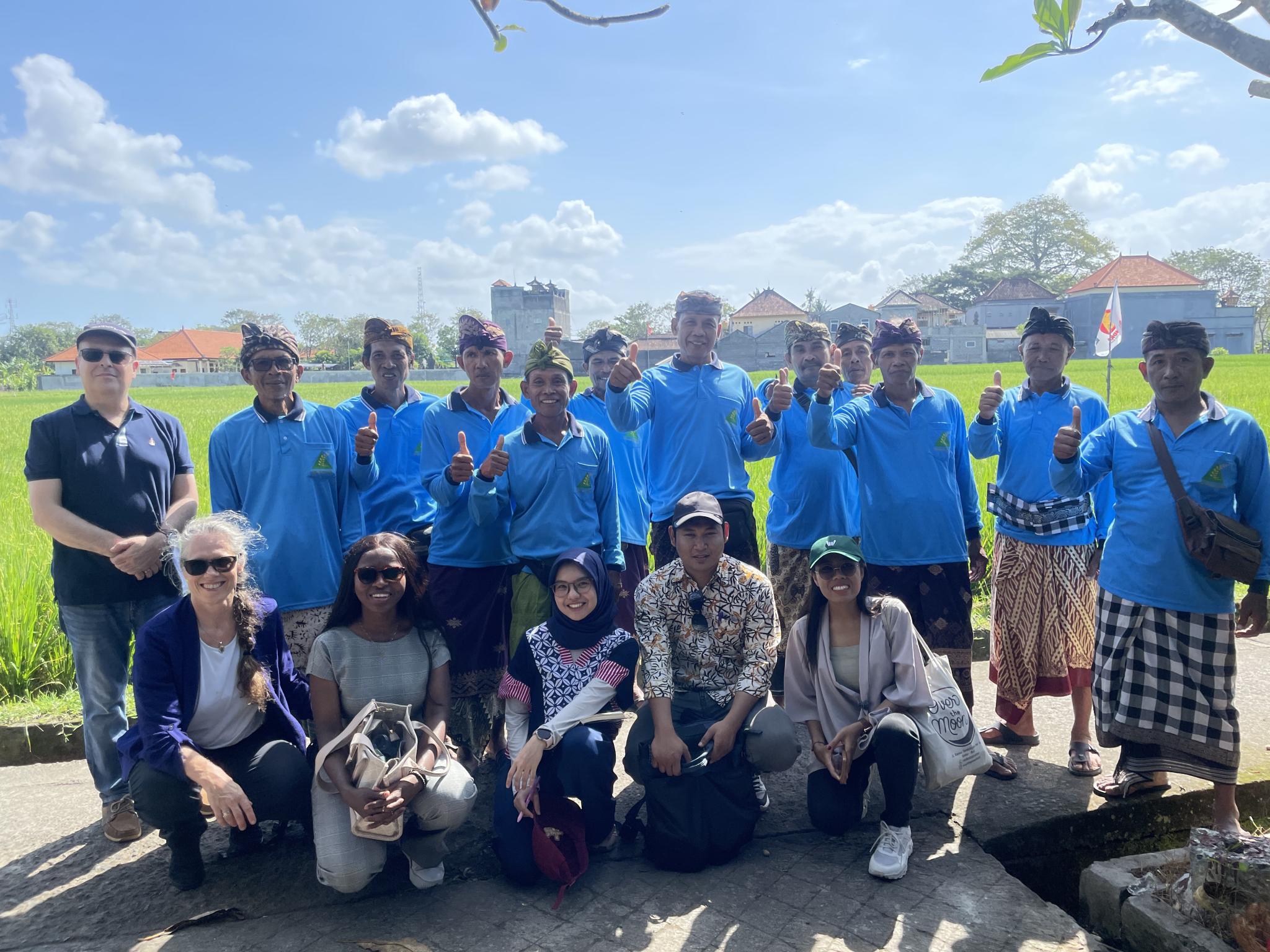
Part three consisted of a workshop hosted by us at Subak Sembung, involving the Subak head and community members. The inspiration for this hands-on activity was the professional education course Water Systems Design: Learning from the Past for Resilient Water Futures, which employs a value-based methodology of integrating history, space, society, and culture to address complex water challenges in a global context of growing water insecurity (Hein et al., 2024). We shared our observations from the visit and captured these in mental maps drafted on the spot. This is an approach used and promoted by members of PCF in the open access course Water Works: Activating Heritage for Sustainable Development. The goal was to gather personal reflections from the diverse group of participants and encourage conversations on the complex synergy of the spatial, social, and cultural layers of Bali's landscape. Answering the question of what their fondest memory of the Subak was, one participant recalled how he used to be able to drink from the irrigation canals of the Subak as a child; another team member shared how the Subak was the place she used to play at as a child. Now it is replaced by housing. She also added that the growing number of tourists limits accessibility to the rice terraces, so it is impossible for anyone who is not a farmer to freely roam them. Subsequent conversations on the challenges, which echoed those earlier mentioned on site, made clear that sale and repurposing of Subak agricultural land for urban functions were no longer controllable via the traditional structure that the Subak system once enforced.
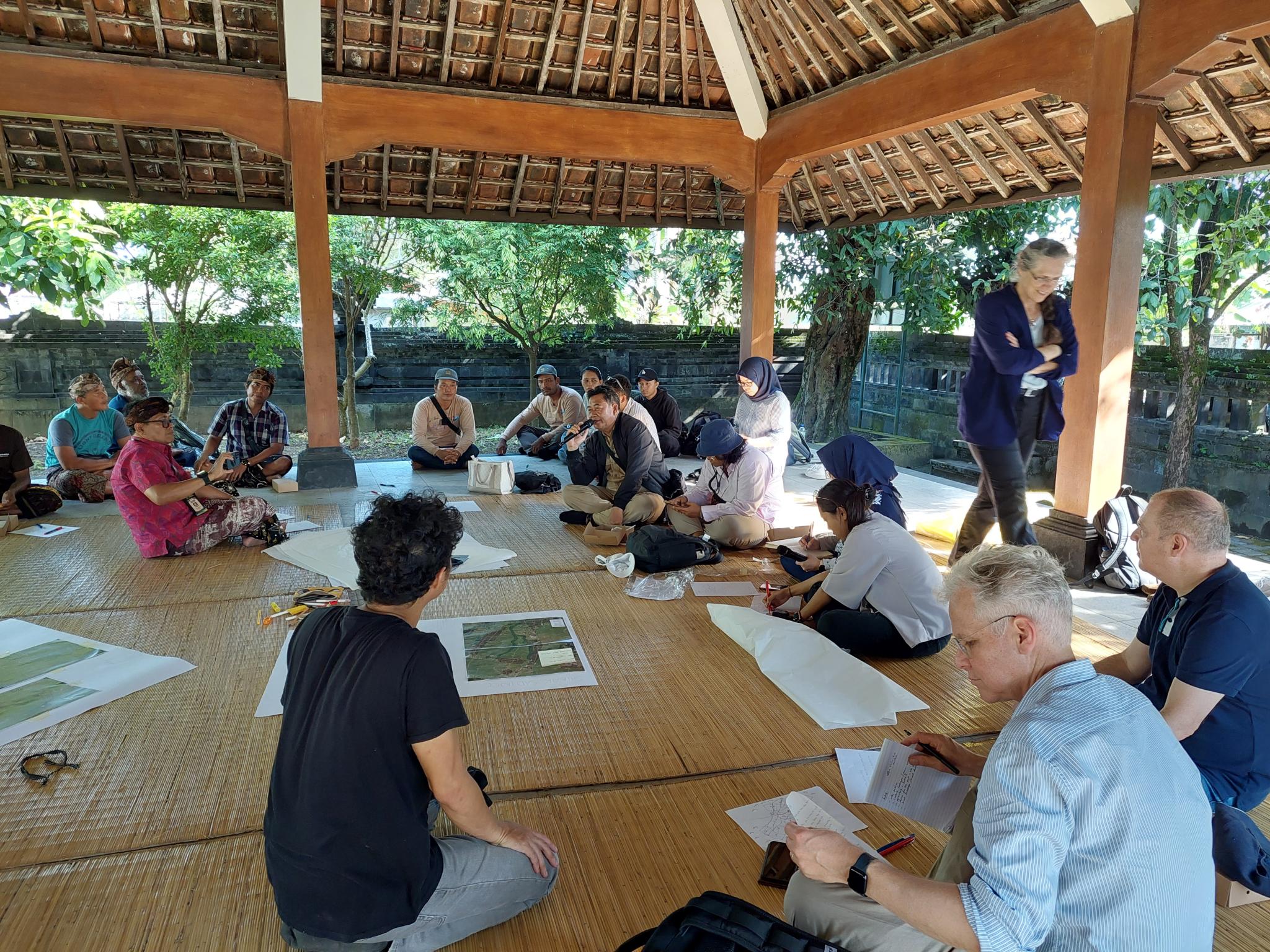
The workshop concluded with questions such as “What will it take to make Subak water drinkable again?” and “How can we together make the Subak community part of decision-making in water management and urban planning?” Several of the participants were young water managers from other Indonesian islands; their appreciation for the concept of the Subak underlined the hope that knowledge encapsulated in its management would continue to hold relevance in the future.
Wednesday’s reporting session at the official 10WWF venue entailed a synopsis of earlier presentations, discussions, and findings from the talk, field trip, and workshop. Our main takeaway was the importance of awareness creation for the cultural and historical significance of the Subak system, mainly by involving and educating younger generations and enacting policies to safeguard and maintain the traditional water management practices in the face of modernization and tourism pressures. These were reiterated by Dr. Ismail Widadi of the Indonesian Ministry of Public Works and Housing, who gave the opening and closing remarks.
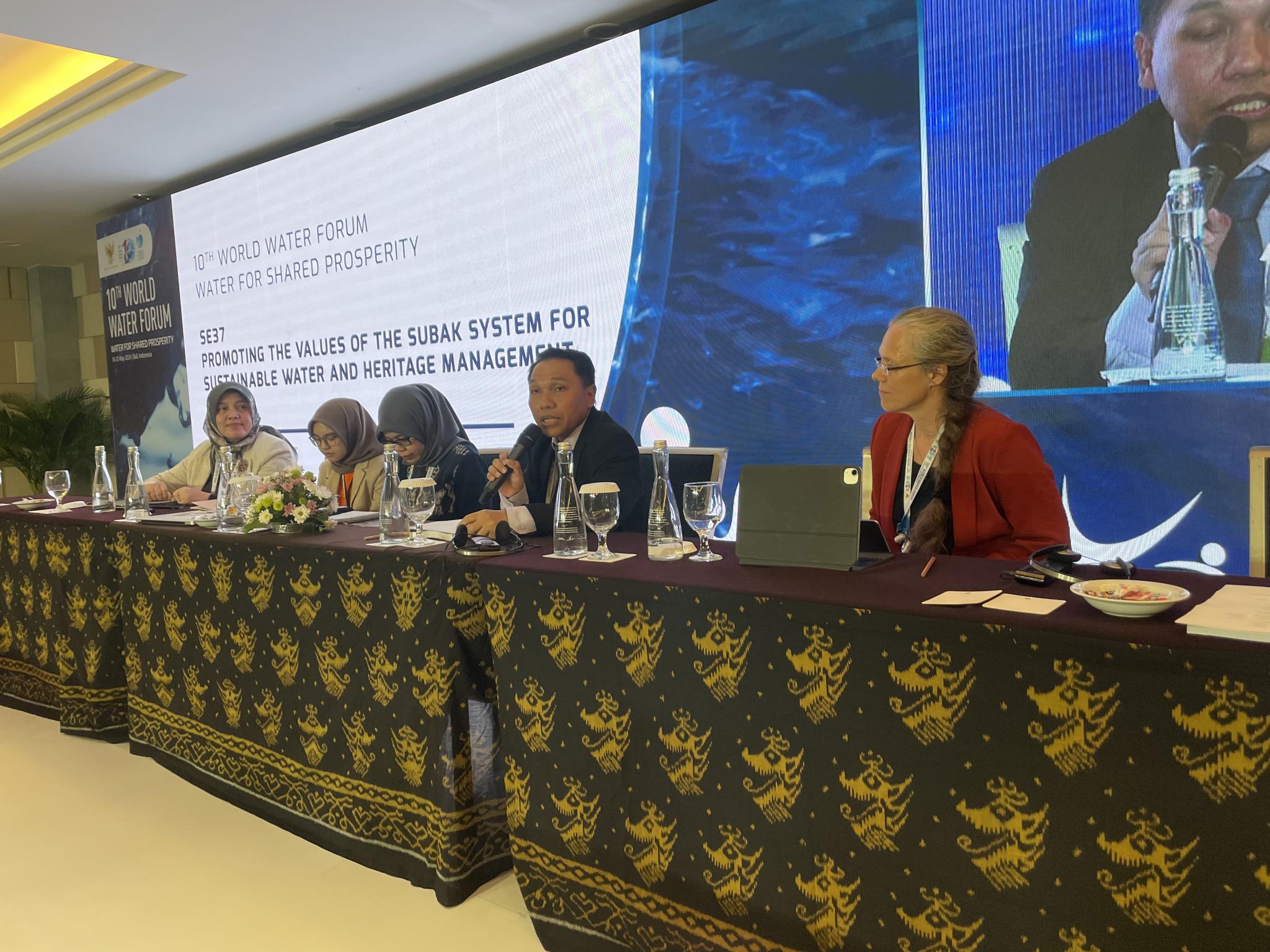
Conclusions and Next Steps
The Subak event raised attention on the cross-ministerial responsibility for the preservation and management of the system and possibilities for expanding the work between local and foreign partners. Going further, lengthy discourse on monitoring systems that promote community stewardship and ownership of water-related projects should be included more in future events. The workshop also emphasized the need for flexible water educational formats depending on the context and target groups. In order to spark change, take action, and achieve impact, local communities should be involved at all stages of policy making, agreement, implementation, and evaluation, with interdisciplinary and cross-territory dialogue and systems thinking at the core of water policy and projects.
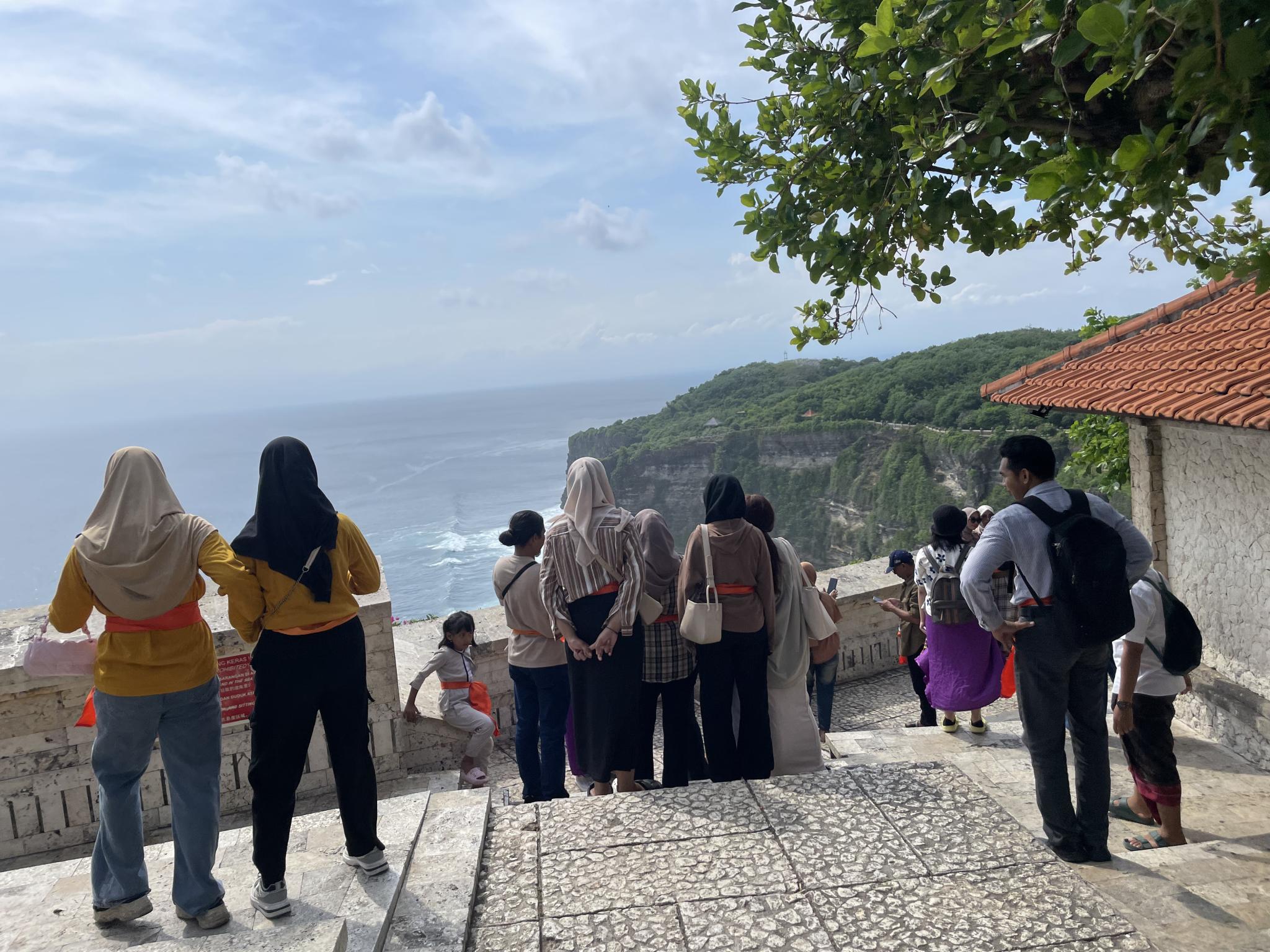
Acknowledgment
Our participation in the 10th World Water Forum was funded by Delft Global, Leiden Global and PortCityFutures Center/TU Delft Chair History of Architecture and Urban Planning.
This blog post has been written in the context of discussions in the LDE PortCityFutures research community. It reflects the evolving thoughts of the authors and expresses the discussions between researchers on the socio-economic, spatial and cultural questions surrounding port city relationships. This blog was edited by the PortCityFutures editorial team: Eliane Schmid.
References
Hein, C., L. Kayrouz, M. D’Agostino, and C. Donkor. Water Systems Design: Professional Course Setup and First Findings for Valuing Water from Ourinhos/SP-Brazil. Retrieved July 29, 2024, from https://www.portcityfutures.nl/news/water-systems-design-professional-course-setup-and-first-findings-for-valuing-water-from.
Port City Futures. (2024). Bali World Water Forum 2024. Retrieved June 16, 2024, from https://www.portcityfutures.nl/unesco-chair/bali-world-water-forum-2024.
